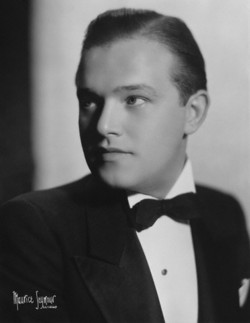One year ago today was the final performance of my most recent musical, Identity. This show was extraordinary in so many ways, posed so many unique challenges, I barely no where to begin. When you first hear about this endeavor, you’ll leap to conclusions as to what those challenges were, and you’ll be wrong.
For instance, when I say this took place in a fancy performing arts complex in the heart of Beverly Hills, you might instantly imagine pampered and fancy people on both sides of the footlights. Then, if I tell you 90% of these people are part of families dealing with “special needs” kids, a different image emerges. Or what if I told you Identity is set in a near-future dystopia? Your mind might go to The Handmaid’s Tale or The Hunger Games and the reality is, it’s a funny musical comedy.
Throw out all your expectations.
The Miracle Project is an organization that uses performing arts to assist autistic people in their transition to adulthood. You’ve heard the term, “autism spectrum” and this carries an implication: There’s a wide range of abilities. Bill Gates, it’s been said, is on the Spectrum, and who’s more accomplished than him? Suppose his talent wasn’t software entrepreneurship, but singing-dancing-acting. Is your head turned around yet?
Like every essay in this blog, I’m going to talk about musical theatre writing. For that is my job. The summer before last, The Miracle Project hired me because, every year, they create and perform an original musical based on input from an elite set of talented folks. The show must entertain, of course, and it also has to be performable by autistic thespians and others. An experienced show-writer like myself could obviously come in handy. I have no experience working with the differently-abled.
So I asked about that. Would I have to know anything about autism to contribute, to musical direct, to run classes? To my bemused surprise, I was told not to worry about it. In the room, at all times, would be a set of people called the Co-Actors. They have the tools necessary to deal with any issue that comes up, so I was told I could do all the things I did with the students at the Broadway conservatory that was for twenty years my home. This seemed unlikely. So, I asked how will I know the co-actors from the autistic. Again, I was told not to worry about that. I wouldn’t know which was which. I was to treat everyone the same. And the Co-Actors would take up roughly half the roles in the show.
This was not what I was expecting. As time went by, I learned a few things about the neuro-diverse community. Being loud can cause problems for some. So, I could never call for fortissimo singing, and, instead of applauding, we wave our hands, using the sign language equivalent of clapping. Identity wasn’t greeted by thunderous noise of approval. The audience was wildly enthusiastic but knew to express it without a din.
For months, the weekly developmental sessions were group discussions that would frequently go off into tangents. I head a lot about anime characters, and one balding fellow obsessively spoke about Sioux Falls, South Dakota. The thing that seemed so unlikely when it was told to me, that I wouldn’t be able to tell the Co-Actors from the autistic, was true for me for months, and definitely for our audience. I learned that it’s a waste of time to think about the who-is/who-isn’t question.
What mattered was the fodder. Ideas about what should go into a show called Identity eventually emerged. But, for the longest time, I couldn’t shake the feeling that this was a wildly improbable endeavor, doomed to failure. Sure, every artistic enterprise involves a leap of faith, but the stuff I was hearing couldn’t possibly be transmogrified into a coherent musical comedy.
Until it could. Near Thanksgiving (2018), I played around with a storyboard and I assembled ideas into elements of plot. IF the group wants to do this, THEN we’re going to need a song that does this. Then I’d write the song. There was also a desire to utilize particular talents people had. So, an operatic soprano needed a reason to sing a bit of Puccini. And the Sioux City fan was an accomplished rap artist. I think you can see how the input I received was challengingly wild. What original story could embrace an aria and a rap about a random Great Plains town?
My collaborators and I figured all that out. The cast was heavily involved in creating their own characters and rehearsal time was often spent improvising scenes. So, more input to embrace. Honestly, the biggest jolt to the process was when the director announced that our rap star would create a number that wasn’t about Sioux Falls. So the show had to be retooled to omit mention of what was once central.
I rolled with those punches. The script went through countless drafts. Many songs were cut. Cast members added songs, in wildly different styles. Another unusual aspect is that the auditions were held before the script was completed. So each new draft (and there were many) dealt with the strong suits and limitations of individual performers. An actor’s discomfort with romantic embraces meant finding a way to convey feelings between characters without a traditional physical manifestation, such as a kiss.
We seek freedom. But, often, it’s the parameters we’re given to deal with that focus our creative thinking and bring out our best work. The stunning success of Identity, it seems to me, is a little like one of those cooking game shows in which chefs are given a bunch of disparate elements and told to make a gourmet meal. Here’s a turnip, pickled herring, lemongrass and boysenberries. Go! I got a Sioux City-loving rapper, an opera diva and a newlywed who doesn’t like to be touched. Go!



 Posted by Noel Katz
Posted by Noel Katz 



